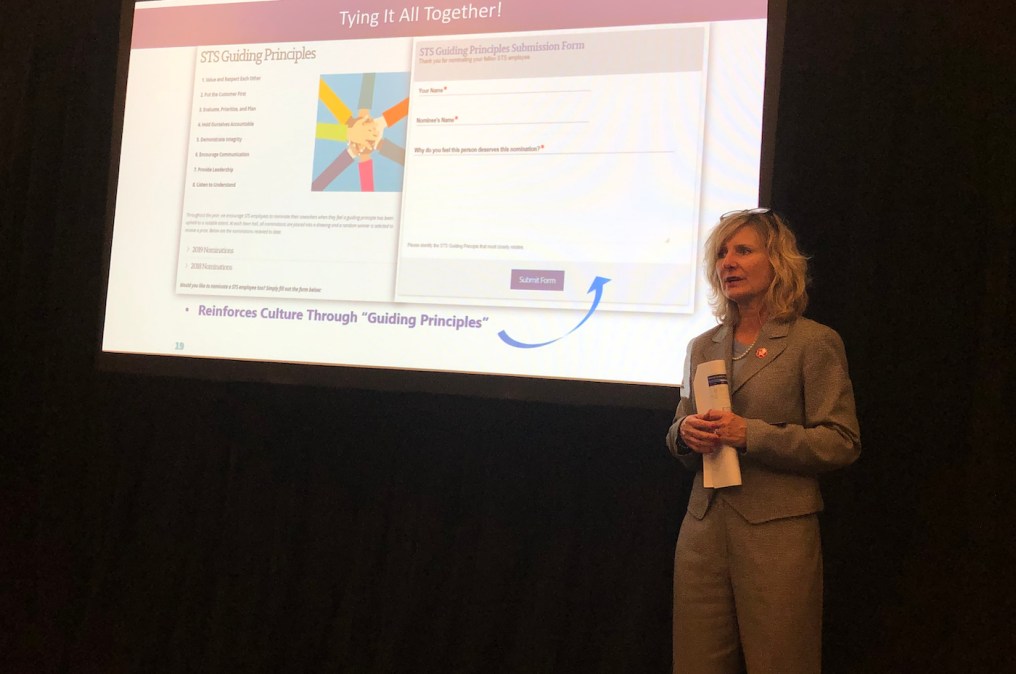State IT workers should adopt ‘consultant’ mindset, Tennessee CIO says

While the role of a state’s chief information officer is frequently described as transitioning to more of a “broker” role, in which the CIO’s day is spent striking big deals with vendors instead of acting as tech support, there’s also a transformation going on among rank-and-file IT workers, Tennessee’s top technology official said Tuesday.
Increasingly, employees in state technology agencies need to approach their jobs with a “consultative mindset” as they make decisions about the devices and applications their organizations use to deliver services, state CIO Stephanie Dedmon said Tuesday at the National Association of State Chief Information Officers annual conference in Nashville, Tennessee.
That’s especially true in a state like Tennessee where IT services are highly centralized, she said. The roughly 1,600 people who make up Dedmon’s agency, Strategic Technology Solutions, are tasked with providing hardware, software and support to a statewide workforce of more than 38,000 spread across 23 different executive-branch departments, meaning IT workers need to be as good at dealing with humans as they are knowledgable about tech.
“We believe and want our staff to be focused on what the customer needs, what the customer’s challenge is, solving problems,” Dedmon said. “That’s not technology. That’s being a consultant. That’s being a good listener.”
Of course, the changing nature of government IT work doesn’t mean tech-y skills aren’t needed, but the expertise that’s in demand is changing as well. Dedmon said there’s a big need for people who are more comfortable with cloud environments than old mainframes.
Data science is another growing need as the state embraces more and more analytics tools, Dedmon said.
The cloud-based service management platform STS implemented in 2016 has been credited with streamlining the agency’s workflow, but it also vastly increased the volume of devices to manage and requests for support, with the average number of work orders per month nearly doubling, according to a case study by the IT service provider Carahsoft.
But the STS workforce isn’t made up entirely of cloud natives just yet. According to a chart presented by Antonio Meeks, the talent management administrator for the Tennessee state government, less than 20 percent of STS employees are millennials, born between 1981 and 1996. Generation X — now in their 40s and 50s — make up 46 percent of the agency, while baby boomers near retirement age account for another 33 percent. The average Tennessee IT worker is 48 years old, prompting the need for retraining a multigenerational payroll.
“How do we train our workforce to work in a cloud environment?” Dedmon asked. “Some of the skills are transferrable. But we don’t foresee replacing our whole workforce just because we’re moving to cloud.”
STS runs a program called the IT Academy, which offers courses for all classifications of jobs with the state government. Dedmon said Tuesday that the program, which began in 2013, recently saw its 10,000th student.
But Dedmon said there are some skills that can’t be picked up in an academic setting, especially when it comes to building and nurturing relationships between vendors and customers.
“Depending on the degrees you hire from, they may or may not have budgeting experience, but more and more it is part of the job we do,” she said.
Dedmon added vendor management and contract management to her list of desired skills, noting that few young, new hires come equipped.
“Those aren’t skills they teach in college,” she said.




